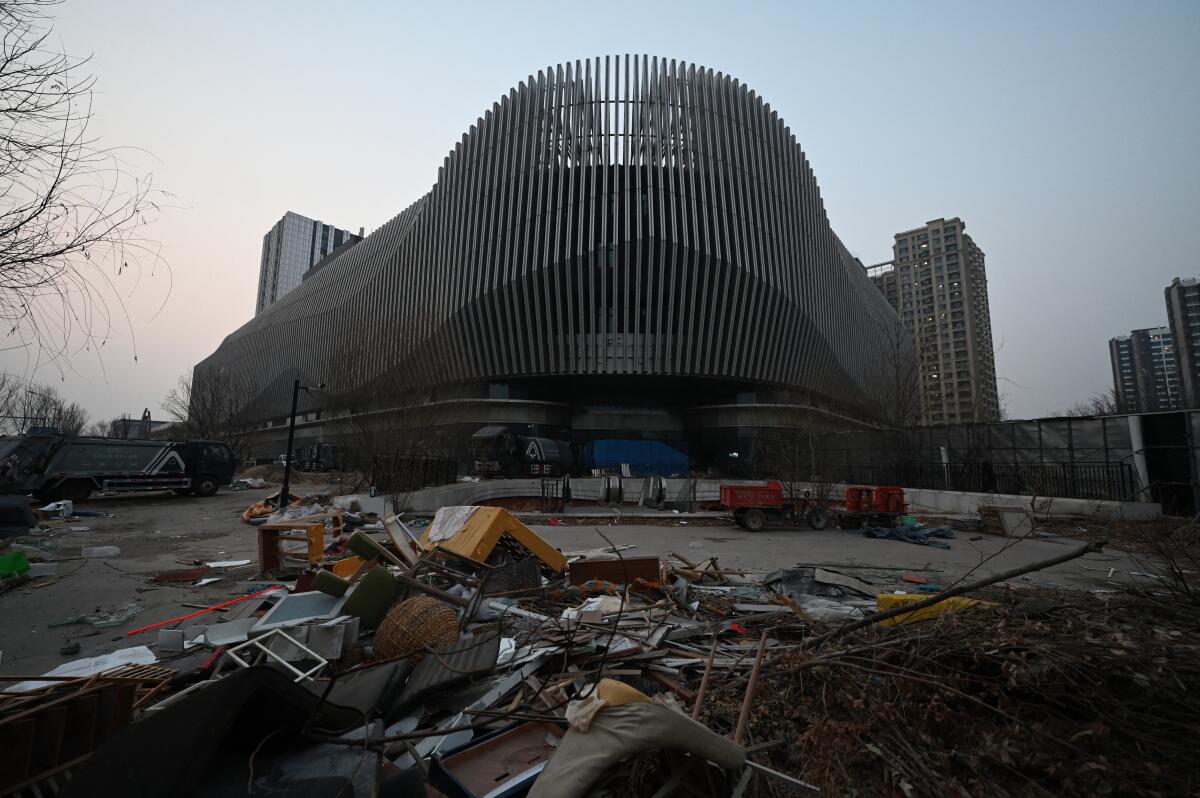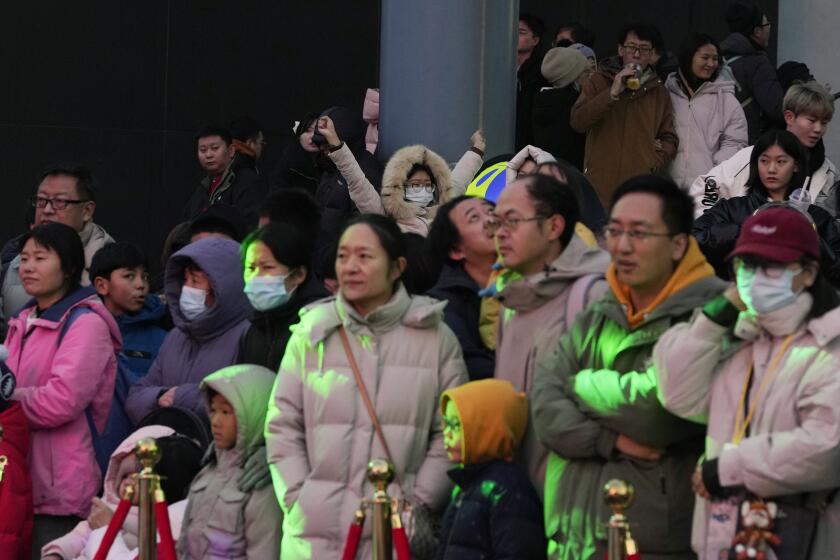China real estate giant Evergrande, over $300 billion in debt, is ordered to liquidate

HONG KONG — A Hong Kong court ordered China Evergrande, the world’s most heavily indebted real estate developer, to undergo liquidation following a failed effort to restructure $300 billion owed to banks and bondholders that fueled fears about China’s rising debt burden.
“It would be a situation where the court says enough is enough,” Judge Linda Chan said Monday. She said it was appropriate for the court to order Evergrande to wind up its business given a “lack of progress on the part of the company putting forward a viable restructuring proposal,” as well as Evergrande’s insolvency.
China Evergrande Group is one of the biggest of a series of Chinese developers that have collapsed since 2020 under official pressure to rein in surging debt, which the ruling Communist Party views as a threat to China’s economy, which already is slowing.
But the crackdown on excess borrowing tipped the property industry into crisis, dragging on the economy and rattling financial systems in and outside China.
Chinese regulators have said the risks of global shock waves from Evergrande’s failure can be contained. The court documents seen Monday showed that Evergrande owes about $25.4 billion to foreign creditors. Its total assets of about $240 billion are dwarfed by its total liabilities.
“It is indisputable that the company is grossly insolvent and is unable to pay its debts,” the documents say.
As a tumultuous 2023 for the Chinese economy comes to a close, at least one bright spot exists in foreign investment: American fast-food chains.
About 90% of Evergrande’s business is in mainland China. Its chairman, Hui Ka Yan, who is also known as Xu Jiayin, was detained by authorities on suspicion of “illegal crimes” in late September, further complicating the company’s efforts to recover.
It’s unclear how the liquidation order will affect China’s financial system or Evergrande’s operations as it struggles to deliver housing that has been paid for but not yet handed over to families who put their life savings into such investments.
Evergrande’s Hong Kong-traded shares plunged nearly 21% early Monday before they were suspended from trading. But Hong Kong’s benchmark Hang Seng index rose 0.9%, and some property developers saw gains in their share prices.
China’s largest real estate developer, Country Garden, initially gained nearly 3% but closed flat. Sunac China Holdings rose 2.4%.
China’s government is relaxing restrictions on night markets and street vendors to stimulate spending and create jobs, especially for young people.
The Hong Kong court gave Evergrande a reprieve in December to allow it time to “refine” a new debt-restructuring plan.
But Chan, the judge, said Evergrande “has not demonstrated that there is any useful purpose for the court to adjourn the petition — there is no restructuring proposal, let alone a viable proposal which has the support of the requisite majorities of the creditors.”
In remarks published online, she lambasted the company for putting out only “general ideas” about what it may or may not be able to put forward in the form of a restructuring proposal. The interests of creditors would be better protected if Evergrande were wound up by the court, she said.
Fergus Saurin, a lawyer representing an ad hoc group of creditors, said Monday that he was not surprised by the outcome.
China, long the most populated country in the world, dropped into second place behind India in 2023, according to U.N. estimates.
“The company has failed to engage with us. There has been a history of last-minute engagement which has gone nowhere,” he said.
Saurin said that his team worked in good faith during the negotiations. Evergrande “only has itself to blame for being wound up,” he said.
Tiffany Wong, one of two liquidators appointed by the court from global services firm Alvarez & Marsal, said that the priority was to ensure that “as much of the business as possible [is] retained, restructured and remains operational.”
“We will pursue a structured approach to preserve and return value to the creditors and other stakeholders,” Wong said. That includes considering any viable restructuring proposals, she said.
Start your day right
Sign up for Essential California for the L.A. Times biggest news, features and recommendations in your inbox six days a week.
You may occasionally receive promotional content from the Los Angeles Times.
Evergrande Chief Executive Shawn Siu told Chinese news outlet 21Jingji that the company feels “utmost regret” at the liquidation order.
He emphasized that the order affects only the Hong Kong-listed China Evergrande unit and that the group’s domestic and overseas units are independent legal entities. Siu said that Evergrande would strive to continue smooth operations and deliver properties to buyers.
“If affected, we will still make every effort to ensure the smooth advancement of risk resolution and asset disposal, and we will still make every effort to advance all work fairly and in accordance with the law,” he said.
Real estate drove China’s economic boom, but developers borrowed heavily as they turned cities into forests of apartment and office towers. That has helped to push total corporate, government and household debt to the equivalent of more than 300% of annual economic output, unusually high for a middle-income country.
As unemployment rises in China, some young adults become ‘full-time children’ at home with their parents. Critics call it ‘gnawing on the elderly.’
Evergrande first defaulted on its financial obligations in 2021, slightly more than a year after Beijing clamped down on lending to property developers in an effort to cool the superheated property market.
Regulators need to restructure Evergrande and other struggling property developers, but it will be a complex and difficult process, said David Goodman, director of the China Studies Center at the University of Sydney in Australia.
“If the government could see simple answers to these problems, it would have reached them two to three years ago,” Goodman said.
More to Read
Sign up for Essential California
The most important California stories and recommendations in your inbox every morning.
You may occasionally receive promotional content from the Los Angeles Times.














